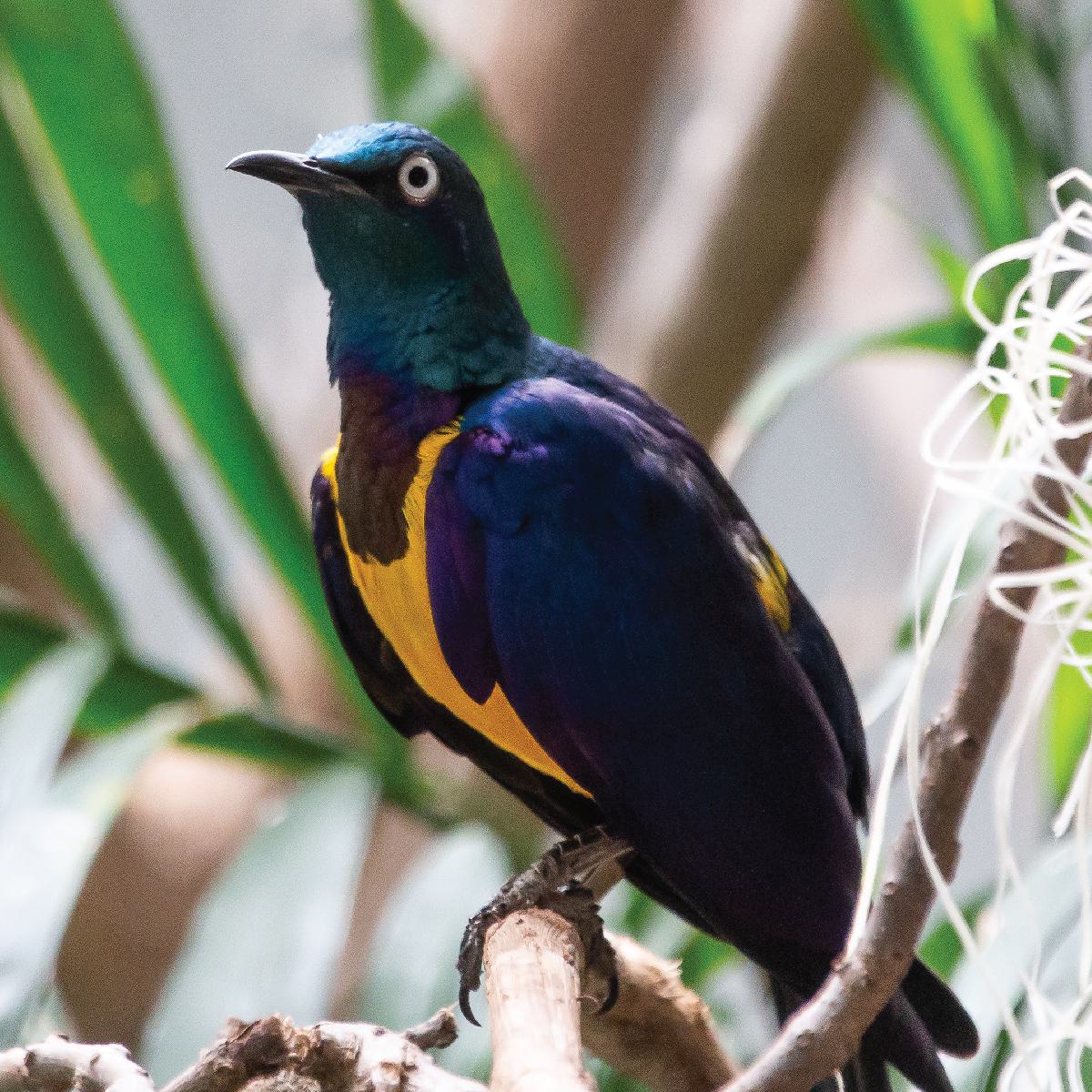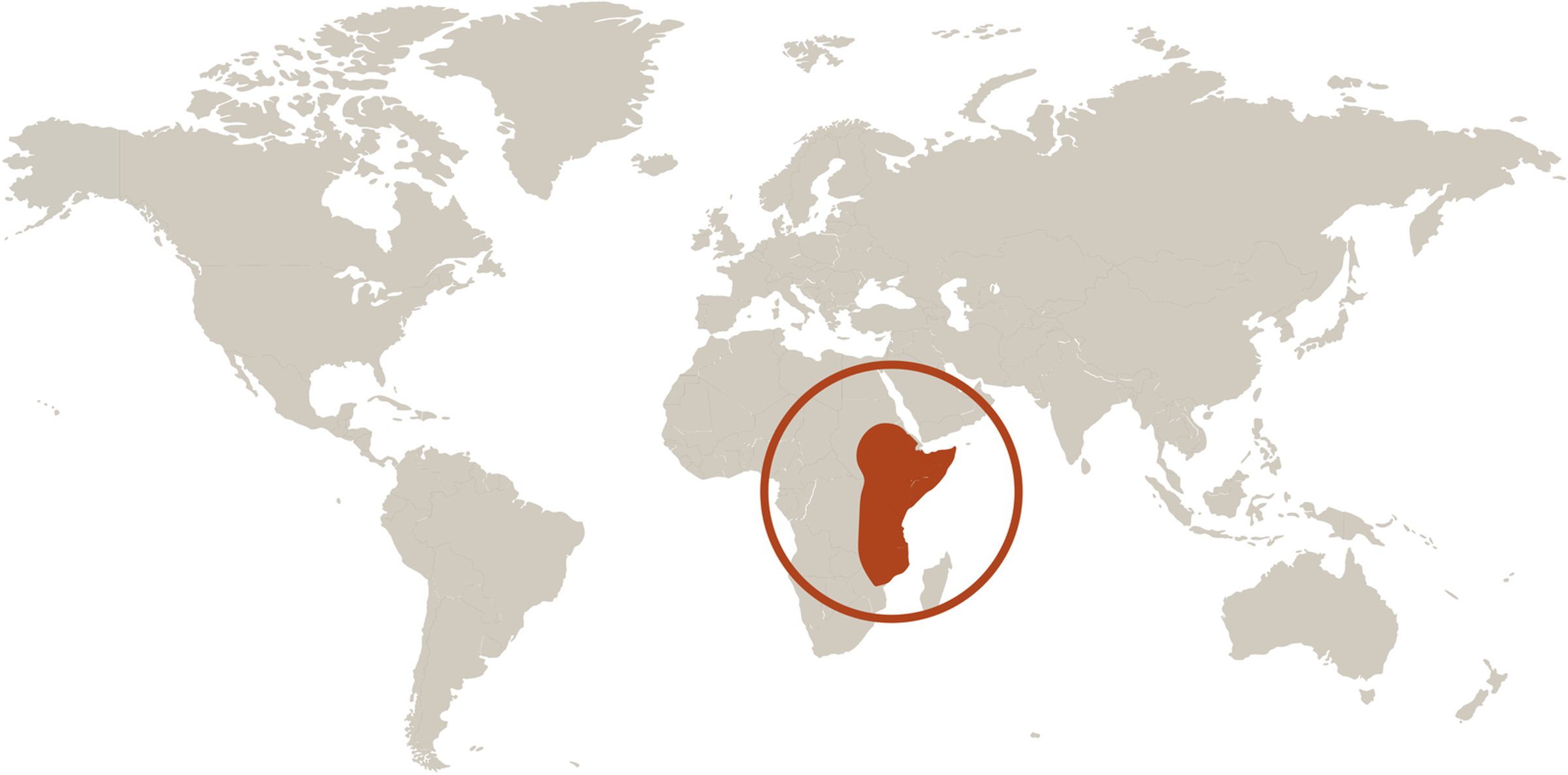
Golden-breasted Starling
Cosmopsarus regius
Did you know?
- Golden-breasted starlings are a part of the Sturnidae family, which they share with starlings and mynas
- They are also known as royal starlings.
- They live in arid acacia savanna in Eastern Africa.
- An adult can grow to be a foot long from the tip of its beak to the end of its tail feathers.
- Females often lay their eggs in tree holes abandoned by woodpeckers.
Adaptations
Golden-breasted starlings have developed vibrant, bright colorations while living in dusty, dry desert habitats, making them stand out instead of camouflage. The young have more muted colors than adults. An adult has a metallic green head, a golden belly, and violet-blue colors on the wings and breast. Through rapid movement with their beaks, they are able to open termite mounds, releasing one of their favorite foods.
Social Structure
Golden-breasted starlings create flocks of up to twelve birds and participate in cooperative breeding. Group members often help a female feed her young by bringing her insects to feed the chicks. All members will help with nest building, which is usually completed in tree holes.
Threat Level
- Unknown
- Common
- Near Threatened
- Threatened
- Endangered
- Critically Endangered
- Extinct in the Wild
Common
The Golden-breasted Starling is widespread and abundant.
Range
Northeastern Africa
Habitat
Arid acacia savanna

We care about golden-breasted starlings
We support golden-breasted starlings in the Bird House at the Zoo. Learn more about how we are helping wildlife around the world.
Find this animal in Historic Hill

SAINT LOUIS ZOO ZONE
Historic Hill
Historic Hill is a lovely stroll through one of the oldest parts of the Saint Louis Zoo. From the 1904 World’s Fair Flight Cage to the Spanish architectural flavor of the 1920s in the Bird House, Primate House and Herpetarium to the finishing touches of our thoroughly modern exhibits, this area of the Zoo has a unique ambiance and a nostalgic history that make it a great destination.

